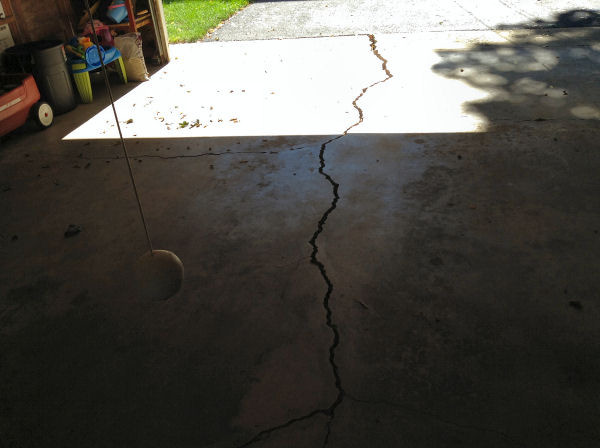02-05-2021
How To Keep Concrete Driveway From Cracking
Your driveway is trying to tell you: You need to act now.
Hairline cracks are common as a driveway ages and weather takes its toll. Cracks will continue spreading, widening, and deepening, which can lead to bigger problems down the road.
Dirt and water will work their way into the cracks. When the water freezes and expands, it causes the cracks to grow. Kent Hansen, director of engineering for the National Asphalt Pavement Association (NAPA) in Lanham, Md., says that simply putting an overlay atop the driveway won't solve the problem—the cracks will just come through it. Instead, the cracks need to be cleaned to remove any dirt and debris, and then, ideally, filled with a hot sealer, which is usually applied by a professional.
Jay Sutherland, owner of Expert Asphalt in Watertown, Minn., agrees, saying that a hot sealer is the only long-term solution, since the crack fillers sold at home centers are temporary fixes. 'To do it right, you have to heat the crack filler,' he says. 'It burns into the walls of the crack. When it cools, it expands and fills the crack. It's a permanent fix.'
Hairline cracks are common as a driveway ages and weather takes its toll. Cracks will continue spreading, widening, and deepening, which can lead to bigger problems down the road.
Dirt and water will work their way into the cracks. When the water freezes and expands, it causes the cracks to grow. Kent Hansen, director of engineering for the National Asphalt Pavement Association (NAPA) in Lanham, Md., says that simply putting an overlay atop the driveway won't solve the problem—the cracks will just come through it. Instead, the cracks need to be cleaned to remove any dirt and debris, and then, ideally, filled with a hot sealer, which is usually applied by a professional.
Jay Sutherland, owner of Expert Asphalt in Watertown, Minn., agrees, saying that a hot sealer is the only long-term solution, since the crack fillers sold at home centers are temporary fixes. 'To do it right, you have to heat the crack filler,' he says. 'It burns into the walls of the crack. When it cools, it expands and fills the crack. It's a permanent fix.'


Concrete driveway cracks can be one of the most frustrating things for any homeowner. When you understand what causes the cracks, then you can prevent them. If there is a large tree within 10 yards of your driveway, then it needs to be removed immediately. Over time, the roots from that tree will.

How To Keep Concrete Driveway From Cracking
- Over time, your concrete is susceptible to cracking. Here's what you can do to prevent it and protect the look of your sidewalk or driveway. Learn tips from a highly rated concrete contractor on why concrete cracks and what you can do to prevent it and protect the look of your sidewalk or driveway.
- Cracking is a normal occurrence when it comes to asphalt driveways and is really nothing to be alarmed about unless it’s excessive. Asphalt driveway cracks will need to be sealed to prevent further damage to the asphalt which is part of the ongoing maintenance of an asphalt driveway that will need to be performed on a regular basis.
- As they grow, they exert uneven pressure on the foundation of the driveway. Once the pressure builds up over time, it will surpass the material’s breaking point and cracks will form. When installing a new concrete driveway, take into consideration it’s placement in relation to growing trees.
- Prep for Crack-Free Concrete. A concrete driveway should last for decades if it’s properly installed. Good finishing techniques will make a slab look great for a while, but proper ground prep will keep it looking that way over its lifetime. Here are some great tips on how to prepare the site for a pour.